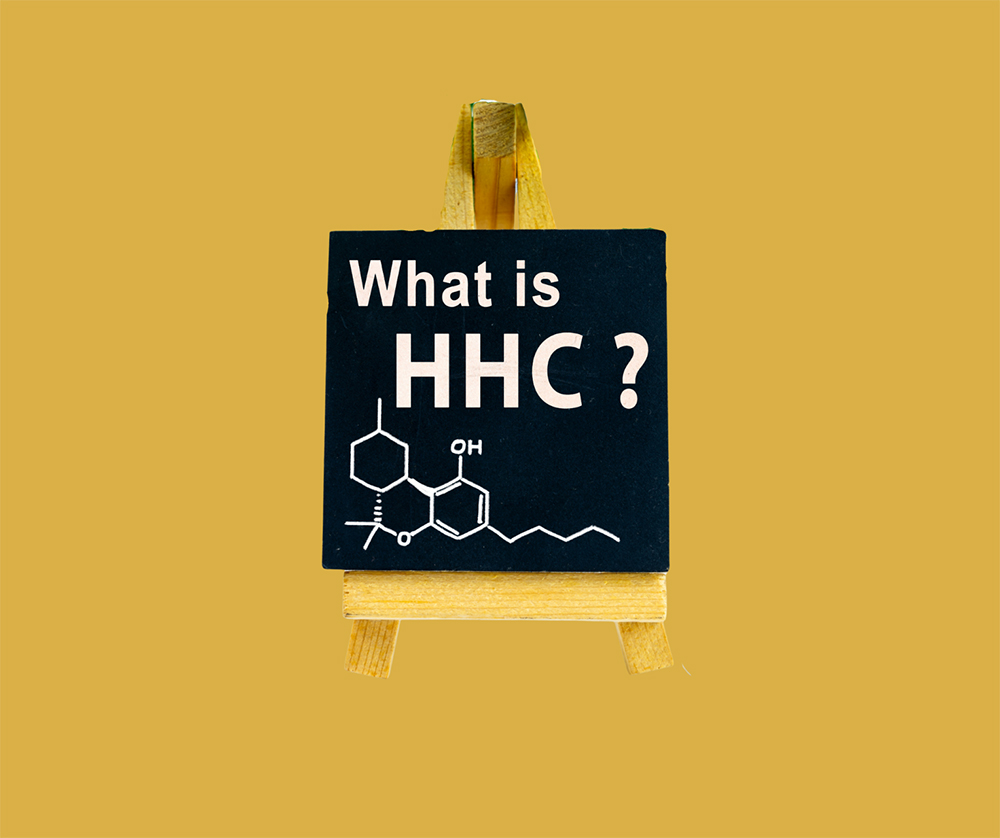As cannabis products become more widely available, new compounds regularly appear on the market – often marketed as safer alternatives to traditional marijuana. One of the newest is HHC, or hexahydrocannabinol, sometimes called “light weed.” While proponents describe it as a milder, less risky option, HHC carries many of the same dangers as delta-9 THC, the primary psychoactive compound in cannabis.
Widespread misconceptions about cannabis products can make people underestimate the risk of dependence. But just like traditional marijuana, HHC can be physically and psychologically addictive, with significant consequences for your health and quality of life.
What Is HHC?
HHC is a cannabinoid that occurs in trace amounts in the hemp plant’s pollen and seeds. Because it’s scarce, most commercial HHC is synthetic – produced in labs by converting THC into HHC. It’s available in products such as gummies, tinctures, vape cartridges, and hemp flower sprayed with HHC oil.
Marketing HHC as a gentler or less harmless substance is misleading. The reality is that its psychoactive effects are unpredictable, especially since this industry lacks regulations and there’s no way to know how much of the active compound a single dose has.
How HHC Affects the Brain
Like THC, HHC binds to your brain’s cannabinoid receptors, part of the innate endocannabinoid system that regulates memory, mood, appetite, stress, and sleep. This binding produces the euphoric or calming effects associated with cannabis.
- Short-term effects: Relaxation, altered perception, slowed reaction times, poor coordination, increased appetite, and mood swings.
- Long-term risks: Memory issues, decreased motivation, impaired judgment, anxiety, panic attacks, and paranoia.
Crucially, repeated HHC use can rewire your brain’s reward system, leading to psychological dependence and addiction.
Can You Get Addicted to HHC Weed?
Despite its innocuous reputation, HHC can be habit-forming. Addiction develops when your brain becomes reliant on any substance to regulate mood or stress, and you feel compelled to keep using it even when it causes harm.
Signs of HHC addiction may include:
- Using daily or multiple times a day
- An increasingly higher tolerance
- Feeling anxious or irritable when you don’t use HHC or other marijuana products
- Losing interest in hobbies or responsibilities
- Continuing to use despite health or relationship issues
Health Risks of HHC
While research is still limited, HHC’s potential health concerns could mirror those of THC, which may include:
- Anxiety, panic, or paranoia
- Hallucinations or psychosis
- Cognitive impairment and memory loss
- Lung damage from vaping products
- Repeated vomiting from chronic use
- Developmental risks for people under 25, whose brains are still maturing
- Low birth weight and other complications if used during pregnancy
Product safety is another concern. HHC products may unexpectedly contain harmful contaminants or leftover chemicals from production. Dosing is especially inconsistent with edibles, which can increase the risk of accidental poisoning.
Breaking Free From HHC Addiction
If HHC use has become problematic, don’t wait for it to get worse. NEM Recovery provides a full continuum of care for cannabis and synthetic cannabinoid addictions.
- Medically managed detox to ease withdrawal symptoms
- Residential treatment in a tranquil, private beachfront location
- Therapy and counseling to address the emotional and psychological roots of substance use
- Dual-diagnosis treatment for co-occurring anxiety or depression
- Family therapy to repair strained relationships and build healthy support systems
Begin Recovering in Beautiful Laguna Beach
Even if HHC’s effects are milder than traditional marijuana, it can still have serious risks. Addiction is possible with any substance that alters brain chemistry – and early use, frequent use, or emotional reliance only increase your vulnerability.
It’s time to reach out for help if you depend on HHC to cope and its use interferes with your life. NEM Recovery will guide you toward a healthier, substance-free future.

